Description
The Dialogue of the Prince with Death, Allegory of the Horrors of War by Antoine Caron printed on a T-Shirt
About the T-Shirt
Regular fit
Standard length, the fabric easily gives into movement
Casual wear
A classic, everyday option loved by our customers
Side-seamed
Constructed by sewing two parts together, creating a fitted look
The Unisex Staple T-Shirt feels soft and light with just the right amount of stretch. It’s comfortable and flattering for all. We can’t compliment this shirt enough–it’s one of our crowd favorites, and it’s sure to be your next favorite too!
- Solid colors are 100% Airlume combed and ring-spun cotton
- Ash color is 99% combed and ring-spun cotton, 1% polyester
- Heather colors are 52% combed and ring-spun cotton, 48% polyester
- Athletic and Black Heather are 90% combed and ring-spun cotton, 10% polyester
- Heather Prism colors are 99% combed and ring-spun cotton, 1% polyester
- Fabric weight: 4.2 oz./yd.² (142 g/m²)
- Pre-shrunk fabric
- 30 singles
- Side-seamed construction
- Tear-away label
- Shoulder-to-shoulder taping
- Blank product sourced from Nicaragua, Mexico, Honduras, or the US
Antoine Caron (1521-1599)
Antoine Caron was a French master glassmaker, illustrator, Northern Mannerist painter and a product of the School of Fontainebleau.
He is one of the few French painters of his time who had a pronounced artistic personality. His work reflects the refined, although highly unstable, atmosphere at the court of the House of Valois during the French Wars of Religion of 1560 to 1598.
Caron was born in Beauvais.
He began painting in his teens doing frescos for a number of churches. Between 1540 and 1550 he worked under Primaticcio and Niccolò dell’Abbate at the School of Fontainebleau. In 1561, he was appointed the court painter by Catherine de’ Medici and Henry II of France. As court painter he also had the duties of organizing the court pageants. In this way he was involved in organizing the ceremony and royal entry for the coronation of Charles IX in Paris and the wedding of Henry IV of France with Marguerite de Valois. Some of his surviving illustrations are from these pageants.
His drawings of festivities at the court of Charles IX are likely sources for the depiction of the court in the Valois Tapestries. He died in Paris in 1599.

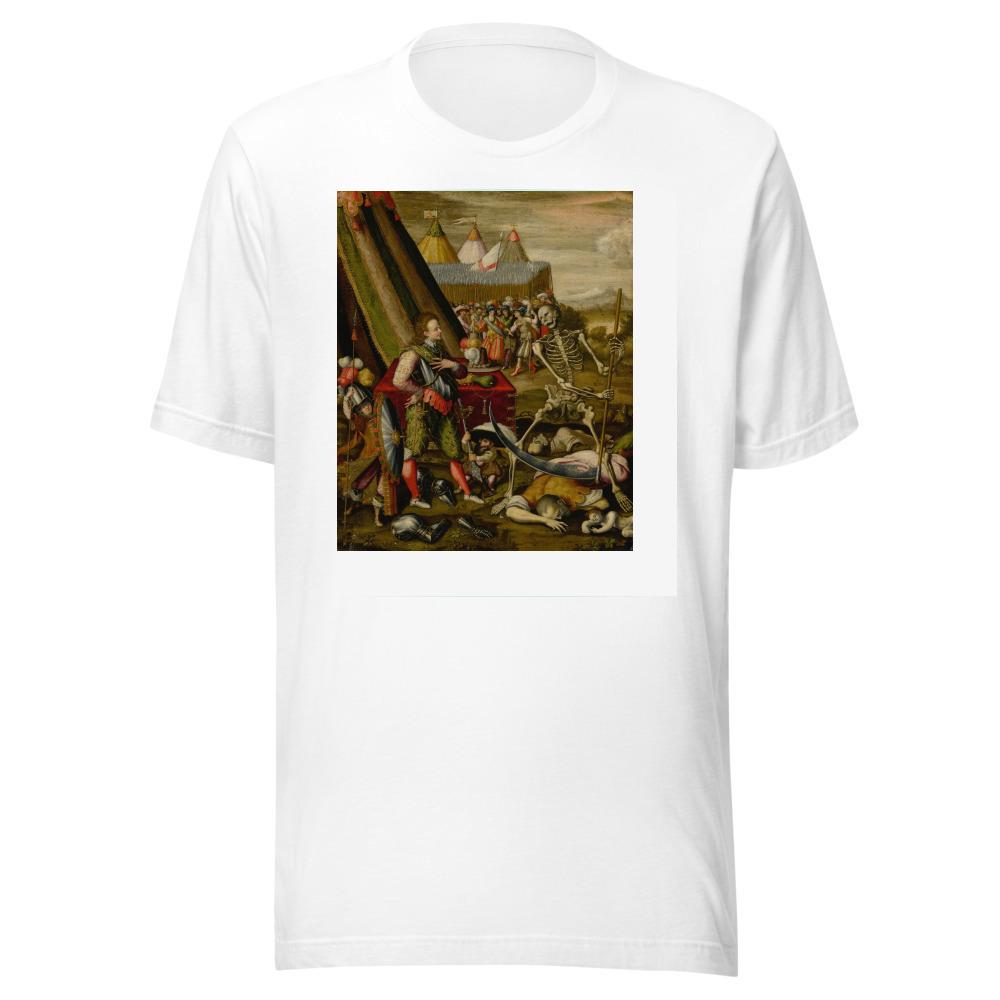
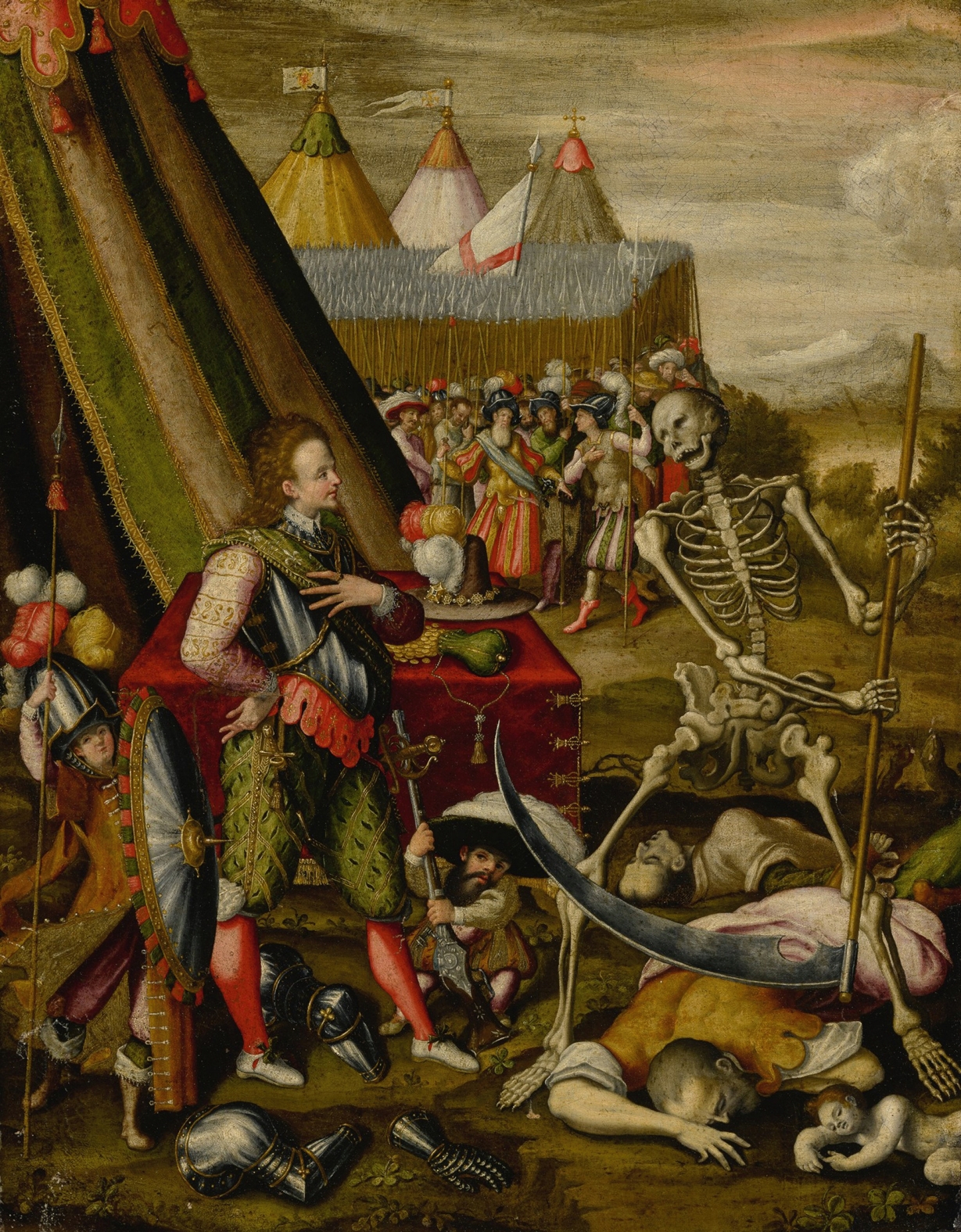
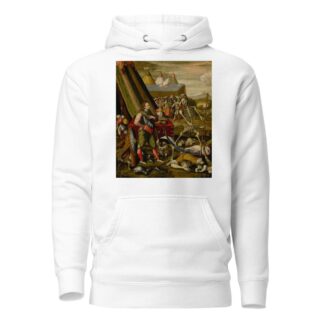
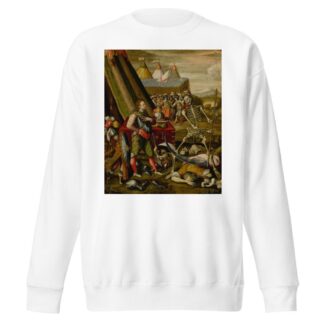
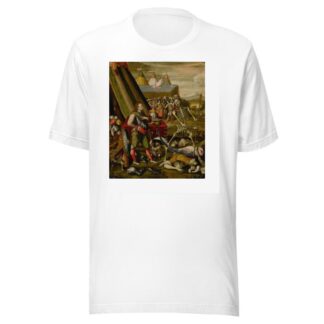
Reviews
There are no reviews yet.